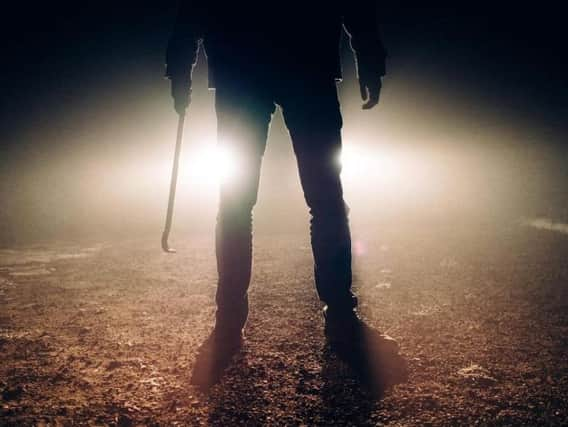Rise in rural crime costing Lancashire £1.6m a year


The cost of livestock rustling and equipment theft in the county was more than £1.6m last year, according to figures from insurance firm NFU Mutual.
The bill was almost six per cent up on 2017, with Lancashire the seventh worst-affected county in the UK for countryside offences.
Advertisement
Hide AdAdvertisement
Hide AdThe total cost nationally topped £50m during 2018, the highest for seven years. And it is having a huge impact on rural communities.


“One of the most alarming findings in their year’s report is that fear of crime is changing life in the countryside,” said Jo Oliver, the company’s senior agent in Preston.
“From constant reports of thefts and suspicious vehicles touring the countryside, and rural criminals regularly staking out farms, country people feel they are under siege.”
The report says that rural crime across the UK in 2018 rose 12 per cent on the previous year, despite widespread initiatives to clamp down on offenders and protect property.
Advertisement
Hide AdAdvertisement
Hide AdThe sharp rise, says NFU Mutual, is being driven by high value thefts of tractors, quad bikes and other farm vehicles. The value of equipment stolen has risen by more than a quarter (26 per cent) to £7.4m.
In the North West, the most commonly targeted items over the past 12 months were tools, all terrain vehicles (ATVs/quads) and machinery.
Lancashire’s rural crime cost £1,638,000 in 2018 - a 5.9 per cent increase on the previous year.
“Limited police resources and repeat attacks are the biggest fears for people in rural communities, with many forced to change the way they live and work as a result of rural crime,” explained Jo Oliver.
Advertisement
Hide AdAdvertisement
Hide Ad“We work closely with our rural policing teams in Lancashire to help prevent crime and the fear of crime and have regular meetings to identify any hotspots.
“Repeat attacks are causing widespread anxiety and exacerbating the problems of rural isolation amongst farmers who often work alone all day. Some farmers are so concerned about the risk of criminal attack they can no longer leave the farm with their family to attend local agricultural shows.
“Farmers are combining modern technology with physical fortifications to try and keep one step ahead of the thieves. Together with digging ditches and putting up earth banks to prevent criminals getting on to farm land, we’re seeing electronic devices like infra-red beams which send alerts to mobile phones and geo-fencing, which triggers an alarm if tractors go beyond farm boundaries.
“These technologies are proving to be effective weapons in the fight against rural crime. This is increasingly important because today’s determined thieves come armed with battery-powered angle grinders which can cut through chains and padlocks in seconds to access farm buildings and tool sheds.
Advertisement
Hide AdAdvertisement
Hide Ad“The threat of becoming a victim of rural crime, and regular reports of suspicious characters watching farms, is causing high levels of anxiety amongst farmers who know their rural location makes them vulnerable to attacks.
“Our advice to people living and working in the countryside is to regularly evaluate your current security measures making improvements where necessary, remain vigilant and report any suspicious activity to the local police and local farm watch schemes.
“The good news is that security technology is developing fast and we’re already clearly seeing that thieves avoid tractors fitted with good security kit and sheep that have been marked with microdots.
“Innovative use of social media to report criminal activity is also working well in some areas - and reducing isolation. There’s no doubt that when police, farmers and other rural organisations tackle rural crime in an organised way they get results.”
Advertisement
Hide AdAdvertisement
Hide AdOne farmer, Barbara Davis from Longridge, says her family have taken tough measures, including a full CCTV system, to try and keep property and livestock safe.
“Once upon a time we didn’t have to do this, but things have changed,” she said.
Rural groups work with police teams to increase security in the countryside.
Supt Julian Platt, rural operational lead for Lancashire Constabulary, said: “We recognise the challenges in rural communities that these statistics highlight.
Advertisement
Hide AdAdvertisement
Hide Ad“We are committed to protecting our rural communities and will continue to work to reduce this trend. The Constabulary sees strong partnerships, together with focused police activity, as the key to impacting on rural crime.
“We would ask the public to support this approach and keep talking to us.”
Clive Grunshaw, Lancashire’s Police and Crime Commissioner said: “Protecting our rural communities is as much a priority for me as policing our more urban towns and cities and Lancashire Constabulary’s dedicated rural policing team works around the clock to keep people safe.
“Here in Lancashire we have lost over 750 officers since 2010 after almost 10 years of Government budget cuts required us to save £84m with over £18m still to find by 2023.
Advertisement
Hide AdAdvertisement
Hide Ad“However, I continue to support this work through investment in specialised rural crime vehicles, smart water vehicle marking kits and infrared scopes.
“Rural crime has a financial cost but importantly a huge personal impact. Lancashire Victim Services is reaching more victims of crime than ever before and support is available for all victims of crime to help them to move forward.”